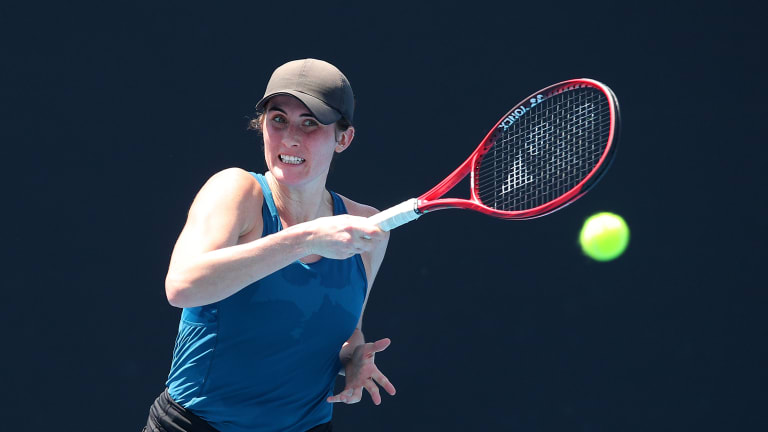Rebecca Marino's comeback continues in Roland Garros qualifying
By May 22, 201950 Years, 50 Heroes: 2018, Michael Stich
By Dec 28, 201850 Years, 50 Heroes: 2017, Jean-Julien Rojer
By Dec 28, 201850 Years, 50 Heroes: 2016, Monica Puig
By Dec 27, 201850 Years, 50 Heroes: 2015, Nick Kyrgios
By Dec 27, 201850 Years, 50 Heroes: 2014, Elena Baltacha
By Dec 26, 201850 Years, 50 Heroes: 2012, Larry Ellison
By Dec 25, 201850 Years, 50 Heroes: 2011, Stacey Allaster
By Dec 25, 201850 Years, 50 Heroes: 2010, Aisam-ul-Haq Qureshi
By Dec 24, 201850 Years, 50 Heroes: Casey Dellacqua, 2008
By Dec 21, 2018Rebecca Marino's comeback continues in Roland Garros qualifying
The Canadian advanced to the second round with a 6-7 (5), 6-4, 7-5 win over France’s Tessah Andrianjafitrimo.
Published May 22, 2019
Advertising

Rebecca Marino's comeback continues in Roland Garros qualifying
© Getty Images